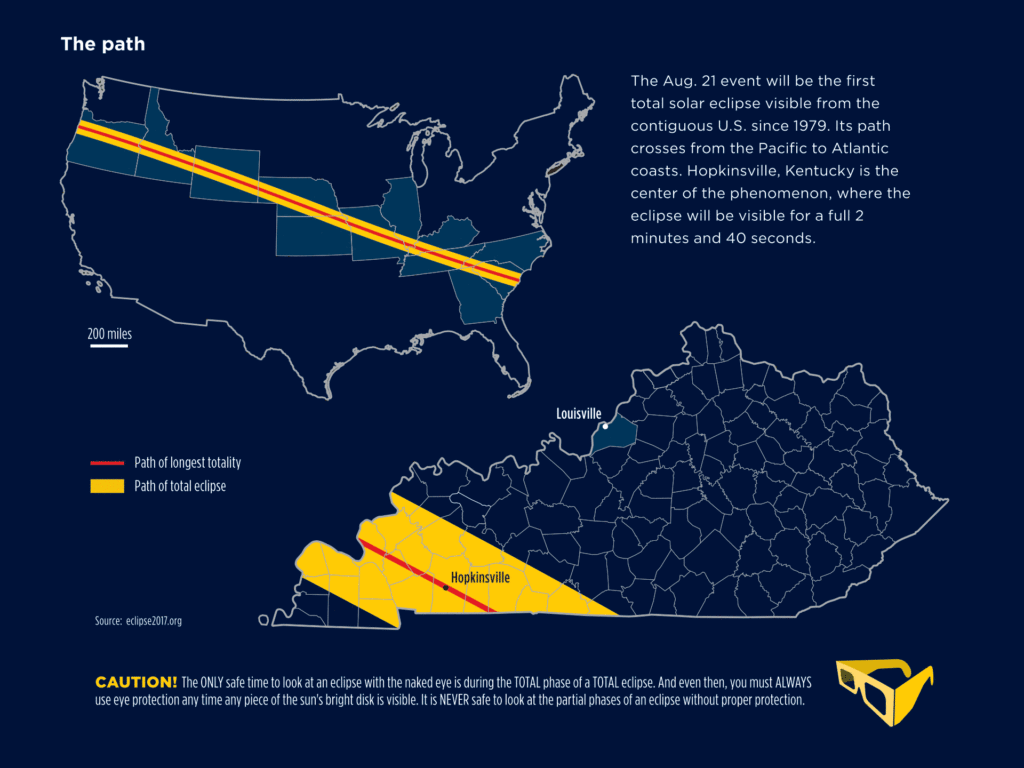Whether it’s a solar eclipse or the controversy over Pluto’s classification as a planet, when the public gets intrigued by astronomical news, scientists relish the chance to educate.
The outreach is an important part of an astronomer’s work, according to Benne Holwerda, a new UofL associate professor who has been speaking to area school groups about the eclipse. “Your job is not complete until you go out in the community and share.”
Gerard Williger spoke about the eclipse in Louisville during the May “Beer with a Scientist” series about diverse scientific topics and also during a campus talk earlier.

When the news is full of examples and potential discoveries, it makes teaching interesting and rewarding. “I actually look for a lot of teachable moments in class,” Williger said. “I think it’s important to become science literate.”
Developments in space also can illuminate a professor’s career-long research interests. Timothy Dowling, who studies atmospheric physics, spent the spring anticipating insight from the final laps of the Cassini spacecraft mission and the first round of peer-reviewed papers from the Juno mission. He admits he has “skin in the game” — hoping for validation of research and methods he published in 1994 and in 2009.
“I’m on pins and needles to get the results of the ‘MRI’ on Saturn and Jupiter,” he said. “I’ve got pretty big predictions on both of them.”
“This is a really neat time in astronomy and astrophysics,” Dowling said. “There’s
a little bit of a renaissance right now.”

























